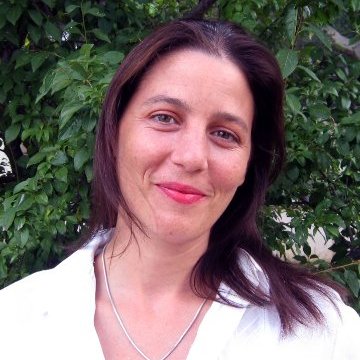Irene Gonzalez Escudero
| AREA | RESEARCH GROUP | INSTITUTE |
|---|---|---|
| Humanities and Social Sciences | GITCE (Spanish Classical Theatre Research Group) | Almagro Institute of Classical Theatre |
I graduated as a philologist from the University of Valladolid in 2016. I then studied for a Master's degree in Advanced Philological Studies, after which I was awarded a pre-doctoral contract that allowed me to continue in academic life and teach Spanish Literature. From then on, I specialised in research into Spanish Golden Age theatre. I have carried out several national and international interventions, included in the research projects (I+D+i) to which I have belonged and which have allowed me to specialise in different authors, such as: Felipe Godínez, Antonio Enríquez Gómez or Rojas Zorrilla. I did a stay at the ITEM (Theatre Institute of Madrid) within the TEAMAD Project (Digital platform for research and dissemination of contemporary theatre in Madrid). I got my PhD with Cum Laude mention in 2021, and I got a Margarita Salas contract that took me to the most important centre of classical theatre in the world: the University of Castilla-La Mancha and its Almagro Institute of classical theatre.
Since 2013 I have collaborated with the organisation of the Classical Theatre Days included in the Festival de Teatro Clásico de Olmedo and I coordinate the editorial team of the newsletters that are produced to help disseminate the theatre of the Golden Age among today's audiences. Since 2022, I have also been carrying out these tasks at the Jornadas organised as part of the Almagro International Classical Theatre Festival.
I belong to the R+D+i Project: "Golden Age theatre in collaboration: texts, authorships, literary spheres of sociability and new instruments of research (TAC)", and my work is part of subproject 1, entitled: "Las comedias en colaboración de Rojas Zorrilla con otros dramaturgos: análisis estilométrico, estudio y edición crítica". This project is based on the need to carry out a detailed study of the whole of collaborative playwriting, which has not been possible before due to the lack of available theatrical texts. To this end, new tools in the field of Digital Humanities (stylometric analysis and Artificial Intelligence) are fundamental, which, together with the current availability of a greater number of published texts, have helped us to be in a position to carry out an overall study of this type of works and to advance in the field of attributions in order to achieve a better knowledge of the dramatic corpus of the Golden Age authors. These new tools are proving very useful in the resolution of authorship problems (very common in collaborative works) and in a considerable increase in the number of texts with which we can work (especially thanks to AI tools, specialised in the transcription of manuscripts and printed texts), and which allow us to advance very quickly in the formation of corpora for their subsequent study. Moreover, in the texts we study, we observe problems and solutions that can be applied to the contemporary world, such as the circumstances in which a change of aesthetics occurs and the consequences it may have, the exclusive situation of women in different fields, the way in which individual freedom is presented in the face of the impositions of the public authorities, the doubt between ethical values and personal choices, solidarity or its absence between social groups, etc.


